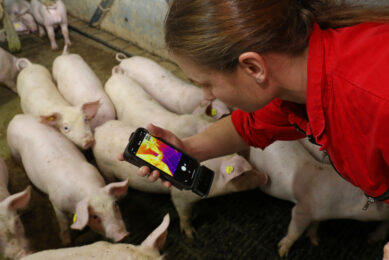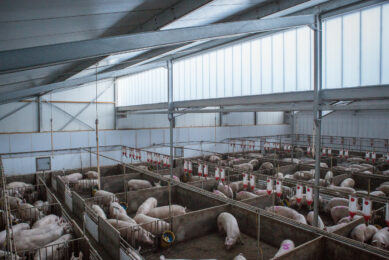Animal welfare now a global issue to consider

According to Dr David Fraser from the University of British Colombia in Canada, animal welfare is now a global issue for the animal health industry. Unlike a few decades ago, when animal welfare was an issue that was not subjected to many research studies.
Emmy Koeleman reporting from IPVS, Vancouver
©
Speaking on the first day of the IPVS, Fraser gave a brief overview of past views of empirical, ethical and cultural perspectives that have shaped today’s stance on animal care and animal welfare. “Public attitudes toward animals have undergone a major shift during the past half century” Fraser mentioned. Practices and technology that were welcomed in the 1960s as progressive ways of housing and managing animals are increasingly being questioned and rejected nowadays.
©
As an expert on animal welfare and its cultural context, Fraser explained that every culture has certain beliefs about the value of animals and the way we should treat them, based on different ways of dealing with animals within these different cultures. However, the way we look at animals started to change when more knowledge was gained about the animals themselves, in terms of anatomy and behaviour. The public anatomy lessons a long time ago revealed that animals and humans are not so much different. This was the starting point for the narrowing of the gap between humans and animals.©
©
But how do we define animal welfare? Fraser named three elements that completes the topic: 1) the affective states, which are pleasure, pain, suffering and happiness. 2) natural living, which entails that the animals should have a life that suits the animal’s natural adaptations and 3) the basic health, including the freedom of disease and proper feeding and water supply. Fraser mentioned that it is important to strive to achieve a balance between these three elements of animal welfare.
©
Fraser believes that animal welfare, just like any other discipline, deserves a place in the scientific approach to animal husbandry. “Topics such as husbandry and housing are sort of lost in today’s animal science programmes, but animal welfare is really a practical discipline in that respect and not just an issue which is based on emotions.
©
Fraser understands that the current focus on animal welfare may also lead to a re-think of veterinary practices. The role of veterinarians in this respect should emphasize on research, leadership and professionalism. Just like finding the balance between the three welfare elements we also need to find the balance between different disciplines working together on the animal welfare topic, such as government, consumer parties, veterinarians and farmers.
Interview with Dr David Fraser











